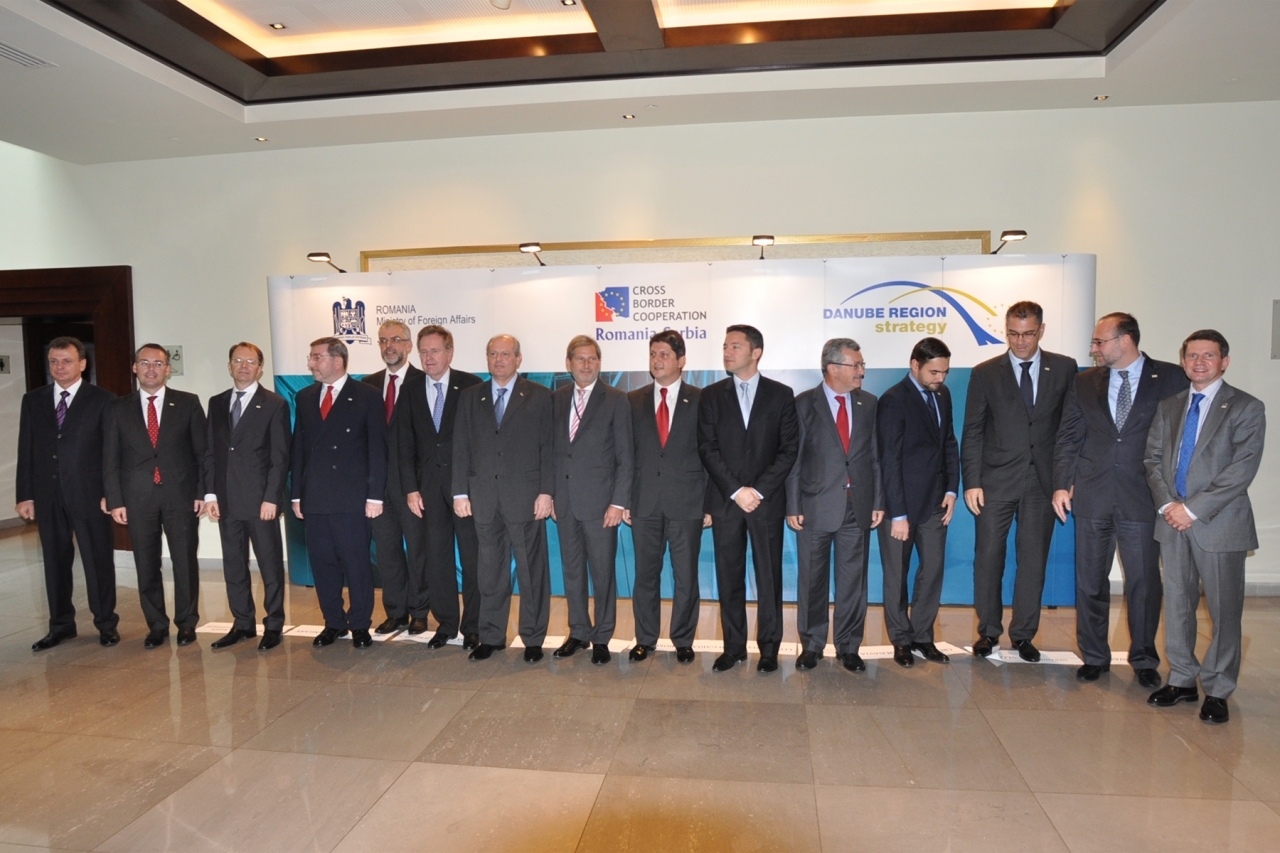The good governance and the enhanced coordination are key to the Danube Strategy
28 October 2013 News
The real progress of the EU Strategy for the Danube Regionand the successful implementation of joint projects require political commitment at all levels, good governance and strengthened coordination.The contribution of the Strategy is significant for better integration between the EU Member States, as well as for the improvement of the cooperation with countries outside the Union.This was stated by the Minister of Foreign Affairs of the Republic of Bulgaria, Kristian Vigenin on the first day of the 2nd Annual Forum of the EU Strategy for the Danube Region, held in Bucharest.
Minister Vigenin noted that last year was successful in building a partnership, identifying targets and implementing projects. “The Danube Strategy has helped to develop new projects or have given momentum to existing trans-national projects. Over 400 projects worth € 49 bn overall are being considered by the Strategy, of which 150 are already in implementation,” said Bulgaria’s top diplomat. In his words, this makes the countries, participating in it, stronger and more competitive both at European and global level.
The Danube Region Strategy is one of the macro-regional strategies that works as a catalyst for improving the implementation of the Europe 2020 Strategy, added in his statement minister Kristian Vigenin. In his words, the added value of the macro-regional strategy has a long-term positive impact going beyond the EU borders. He expressed hope that this important Forum will present new opportunities for joint cooperation in the implementation of the Strategy.
Before the start of the Forum the Foreign Ministers gathered at an informal meeting, which was hosted by the Romanian Foreign Minister Titus Corlăţean. During the discussion Kristian Vigenin noted a tendency of enhancing the role of National Contact Points within the framework of the working mechanism for managing the Danube Strategy. According to him, holding regular meetings twice a year would be beneficial for a more effective coordination. A more active participation by the EC in the overall coordination process of the Strategy will contribute to its success, added the Bulgarian Foreign Minister.
Bulgaria supports the inclusion of macro-regional strategies in the Partner contracts and Operational programmes of the EU countries. "The draft Partnership Agreement between Bulgaria and the EC reflects the objectives of the EU Strategy for the Danube Region and the cooperation with the neighboring countries. This reflects the importance the country attaches to the implementation of the Strategy as a framework for cooperation on macro-level, through which the cross-border challenges in four key areas - creating links for the Danube region, protecting the environment, achieving prosperity and strengthening the region, can be addressed more effectively ", said in his statement Minister Vigenin .
"Building trust, stability and security in Southeast Europe is among the traditional priorities of Bulgaria in the field of regional cooperation," said the Bulgarian Foreign Minister during the forum. He noted that for Bulgaria the SEECP is a leading political format and a regional platform for European and Euro-Atlantic integration of the Western Balkan countries." SEECP and CEI can play an active role as a" bridge between macro - regions and regions,” he added.
In conclusion, Minister Kristian Vigenin emphasized the positive role of the meetings of the 14 foreign ministers at the forum and expressed the willingness of Bulgaria to host one of the next Annual Forums of the EU Strategy for the Danube Region.
